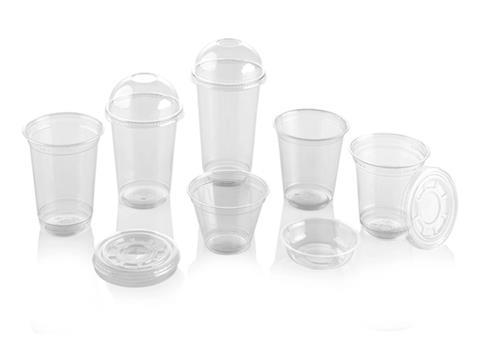
Faerch Group has unveiled its new Tumbler range of recyclable on-the-go beverage containers, which are said to contain a minimum of 30% post-consumer recycled material.
Reportedly, the cups can be fully recycled into new food packaging throughout ‘endless’ cycles while maintaining their safety and functional properties.
As such, it is anticipated that the solution will streamline supply chains and create a simple, seamless user experience for both businesses and consumers.
Four common lid designs and a range of capacities are available to fit a range of foodservice needs.
“Our latest product stands as a testament to our commitment to the environment and our customers’ evolving needs,” comments David Lucas, sales director of Foodservice at Faerch Group. “This new range will seamlessly integrate a circular solution into your brand narrative, with the objective for our customers to capture a greater market share and consumer loyalty.
“Instead of taking more of the world’s resources, we should make better use of those we already have, again and again.”
Faerch underlines its recycled PET packaging’s audited certification, which aims to clarify its claim to sustainability.
He adds: “The amount of recycled post-consumer content in food packaging is a key indicator of more efficient use of our existing materials, and consumers, as well as legislators, expect full transparency.”
In another development, Faerch worked alongside Tesco in a tray-to-tray PET recycling initiative, which sought to recover and recycle plastic food trays back into chilled ready meal packaging.
More recently, Celebration Packaging has incorporated 30% recycled PET into its tamper-evident container range for sandwiches, salad, and deli foods.
Berry Global has taken a slightly different approach with its new range of stackable polypropylene bowls and lids for reuse in foodservice applications. These are also said to be recyclable at end-of-life.
If you liked this article, you might also enjoy:
The Lidl approach to packaging sustainability
How did Brazil achieve its 100% aluminium can recycling rate – and can it be replicated in the EU?
Experts have their say on the EU’s Packaging and Packaging Waste Directive revisions
A deep dive into the most important packaging sustainability trends and solutions














No comments yet